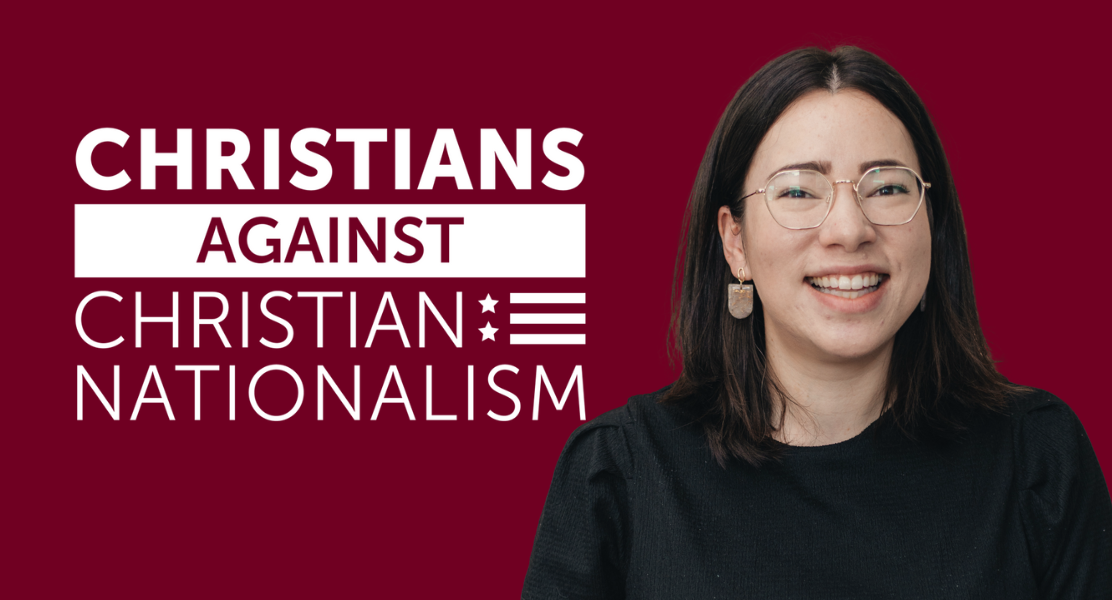Creating change through local groups
“It’s not just about resisting — it’s about transforming our communities into spaces of inclusion, equity and shared strength.”

By Joy Pettigrew
Community Partnership Manager
When you think about resisting Christian nationalism, you might feel overwhelmed. It can seem too daunting. The problem is too large. It’s too entrenched. It’s everywhere. Where do you begin?
Christian nationalism gains traction when communities feel powerless and disconnected. Since joining BJC last year as the community partnership manager, I’m actively engaging in conversations with people across our country who are looking for ways to take action. I also am connecting with people who might not be Christian or part of any faith who recognize the importance of Christians providing a counter-witness to Christian nationalism. People in large and small communities are eager to fight back and live out the values of democracy, pluralism and upholding the human dignity of all people.
So one simple — but important — way to resist Christian nationalism is by building and participating in local, civically engaged communities. It doesn’t matter what type of community you choose to participate in — it could be joining a book club, volunteering at a community center, or participating in your local Parent Teacher Association. Relationships in your local community are crucial because lasting change happens when people work together. These connections create opportunities for local organizing. All of us can amplify voices, share resources and create a network of mutual support that can counteract harmful ideologies and policies. It’s not just about resisting — it’s about transforming our communities into spaces of inclusion, equity and shared strength.
At the start of January, we created a new form that welcomed people to share their interest in starting or joining a local group. At press time for this magazine, we have received more than 540 submissions! Out of those, 128 people specifically signed up to start a local group with our campaign, and that number is still growing.
Sometimes, a special event can spark something bigger, opening the door for new conversations and deeper connections. That’s exactly what happened in Winston-Salem, N.C., after an event for Amanda Tyler’s book How to End Christian Nationalism last year. Recognizing the urgency of the moment, the Rev. Dane Martin of Ardmore Baptist Church took the lead in organizing a local initiative, bringing communities together to chart a path forward. This effort culminated in a powerful first gathering in February.
Although 42 people had registered for the Winston-Salem meeting, more than 96 showed up — filling the room with energy and a shared sense of purpose. People weren’t just there to listen; they were eager to act. In small groups, they discussed their hopes and dreams for Winston-Salem, identifying the issues impacting their community and envisioning a better future. They wanted to learn more, connect with one another and take meaningful steps together.
Many other groups are emerging in locations across the country, and we are building our infrastructure and capacity to equip these initiatives. Whether it’s a hyper-local or statewide group, people are working to strengthen connections, support vulnerable communities and take tangible steps to uphold the dignity and inclusion of all people through organizing, education and advocacy. We are actively listening to what these emerging groups need and providing support. This includes:
- Supporting local groups with the technological infrastructure we have at BJC, including our constituent database that helps us connect people to each other.
- Providing webinars and trainings on skills needed to organize a group and engage in strategic planning. We had our first training February 28, and we are planning several more!
- Offering one-on-one coaching and support, as needed for individual leaders.
- Providing resources, such as a new guide to the first three steps in starting a local group.
- Creating a new fund for local groups, which will provide financial support for their organizing and advocacy efforts. You can learn more about local groups and give to support them.
In addition to community-building, local groups also are able to engage in efforts to push back against harmful policies rooted in Christian nationalism. Across the country, state legislatures are considering bills that blur the line between church and state, such as bills that mandate the display of the Ten Commandments and laws that would create “chaplains” in public schools as a replacement for trained counselors. These policies, often promoted under the guise of religious freedom, actually advance a narrow, exclusionary form of Christianity in public spaces. To support local groups in responding to these challenges in their specific communities and states, we also are sending out action alerts to help people stay informed and make their concerns known to their lawmakers.
If you have a local group working on issues related to Christian nationalism, we want to know! We now have a way to register a group with us, and we’re hoping to feature registered groups on our newly expanded Christians Against Christian Nationalism website. Alternatively, if you’d like to join or start a group, please fill out our involvement form. We can support you, and we will connect you with emerging groups in your area if one is forming!
Together, we can resist Christian nationalism and build communities rooted in justice, equity and love. Change begins with connection — let’s get to work.
Joy Pettigrew is the community partnership manager at BJC.
This article originally appeared in the spring 2025 edition of Report from the Capital. You can view it as a PDF or read a digital flip-through edition.




